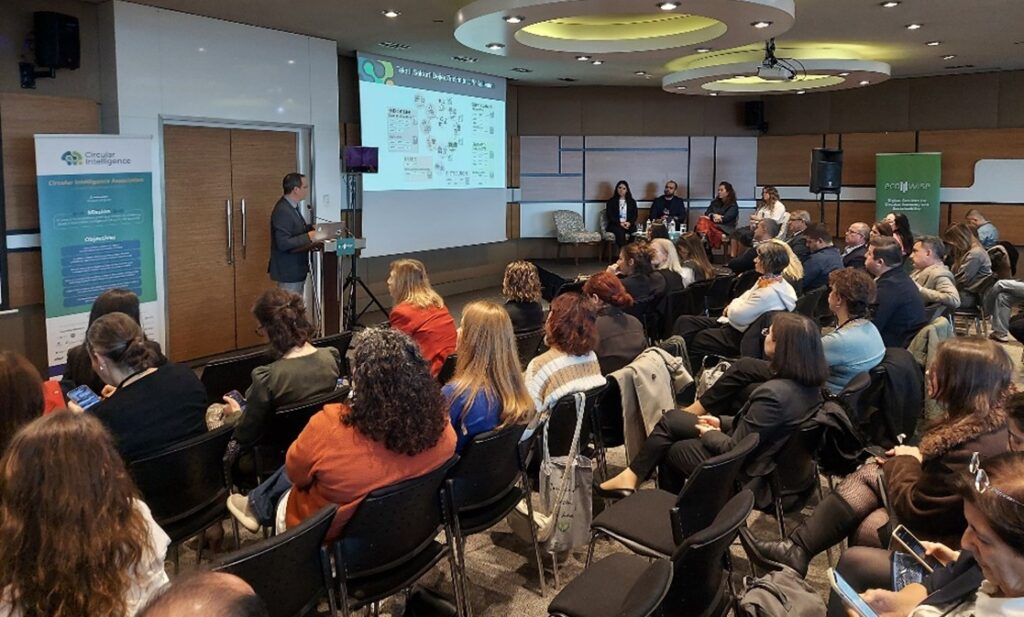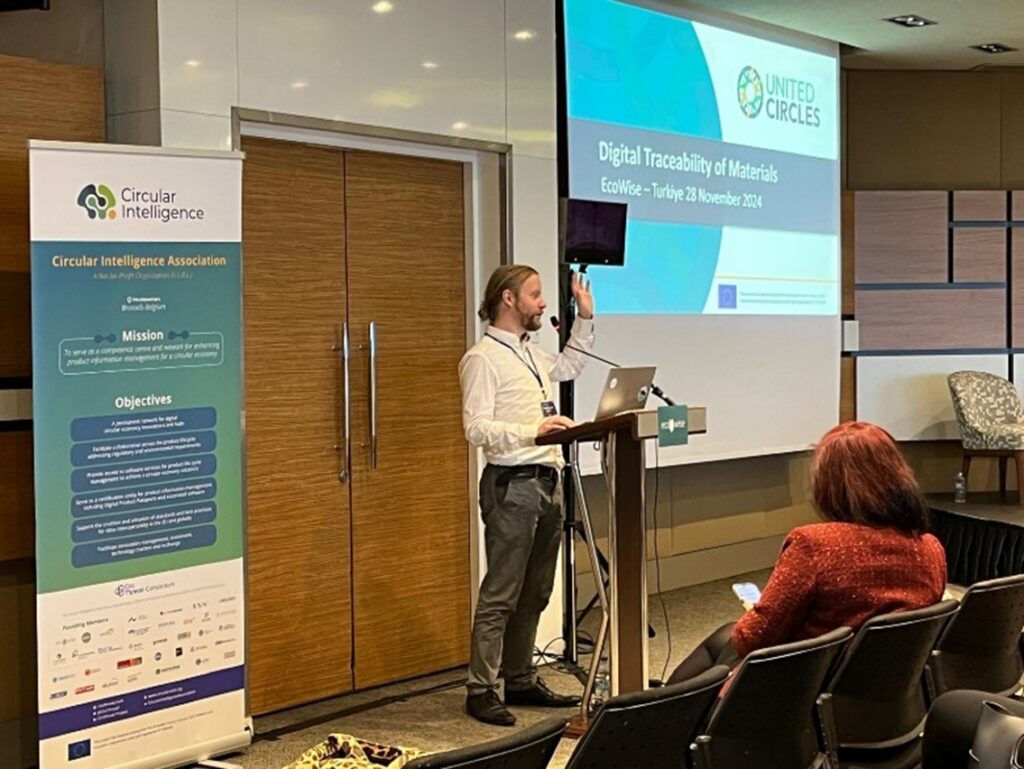
The event, organized as part of the CIRCTHREAD project (Building the Digital Thread for Circular Economy Product, Resource & Service Management) under the European Union’s HORIZON 2020 Program, was successfully hosted by the project’s partners, Ekodenge/Ecowise, with approximately 100 participants in attendance.
The event highlighted Turkey’s transition towards a circular economy, exploring the opportunities and requirements for digital transformation in the context of emerging regulations.
In the meeting, three distinct panels addressed the following topics within the context of the processes of circularity and digitization: Turkey’s objectives, legal regulations, and infrastructure preparations; as well as the sectoral perspectives and initiatives of various manufacturers in the textile, steel and construction materials industries.
According to data presented by Ece Dinsel from the Ministry of Environment, Urbanization, and Climate Change, the global circularity rate stands at 7.2%, while it is 11.5% in the EU. In contrast, Turkey’s rate is 4.54%. This disparity highlights the need for all supply chain actors to actively engage in circular economy efforts, with the primary responsibility placed on producers through Extended Producer Responsibility (EPR).
What actions are being taken in this direction?
One of the panelists, Seda Cündübey from Orta Anadolu, a denim manufacturing company, shared a presentation outlining their efforts in sustainable production. She explained that they measure carbon footprint, water consumption, land use, and resource consumption through a life cycle assessment. Utilizing these data, they implemented energy and water management strategies, resulting in a savings of 44 million liters of water in 2023.
In the transition of manufacturers and SMEs to a circular economy and digital transformation, TÜBİTAK, Turkey’s national contact point for EU framework programs, plays a critical role. Çağrı Yıldırım, National Coordinator for the Horizon Europe Program, provided informative insights into project support opportunities for SMEs and manufacturers within the priority areas for R&D and innovation for 2024–2025.
Additionally, panelists from the Ministry of Trade, Ministry of Environment, Urbanization and Climate Change, and Ministry of Industry and Technology stated that they are preparing to comply with obligations brought by regulations such as CBAM and ESPR, which have been enacted by the EU.

Flagships Projects
Under the flagship projects title, GRETA – a service for rapid automated Life Cycle Assessment, developed by Supsi, one of the CircThread project partners, and Pratis – a digital transformation e-procurement platform developed by another partner, SabancıDx, were introduced to the participants.
The Cirpass-2 project, a digital product passport standardization initiative for the EU, and the pilot studies to be conducted within the project were discussed. The services of the CircThread platform, developed within the CircThread project, were introduced. Additionally, the product data management services for the circular economy, established by the Circular Intelligence Association in Brussels as part of the project, were presented.
Hubs 4 Circularity, creating regional networks for circular upcycling of materials
The objectives and regional impacts of the United Circles, GA-101178798 project, in which Ekodenge is also a partner, were discussed by CARTIF and Ecowise. This project aims to drive the transition toward a circular economy through Industrial Urban Symbiosis, enabling industries and urban communities to collaborate in closing resource loops and reducing environmental impact. UC targets to be the leading hub for Industrial Urban Symbiosis, with first of a kind solution where industries and urban areas harmonize resource flows in a regenerative and sustainable way. Ekodenge is taking part in the project as the leader of the Ankara Hub.
Written by Tugba Aslan, Ekodenge